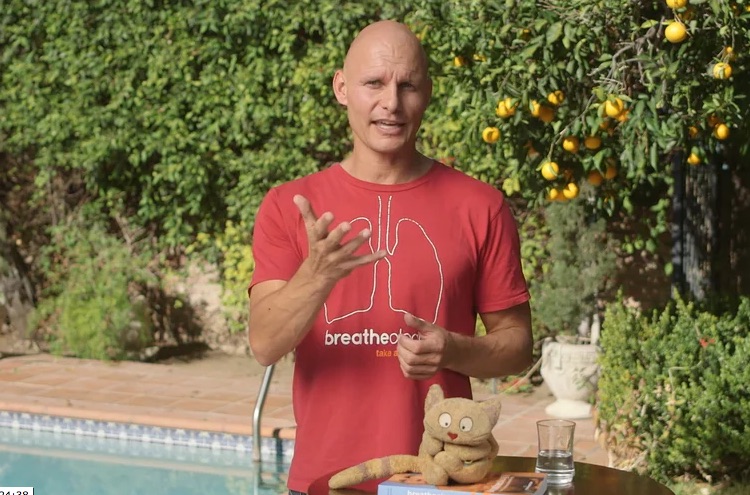In a world filled with stress and anxiety, the search for effective treatments has led researchers to explore alternative approaches beyond traditional medication.
Over the last few years, it has become more and more clear that meditation, mindfulness and breathing exercises are a more healthy, long term effective way to treat stress, anxiety and emotional disorders.
Understanding the interplay between respiration, emotions, and the autonomic nervous system is crucial in comprehending the efficacy of breathing techniques. The complexity of the delicate web of neurons, cells and membranes still poses many challenges for neuroscientists, but the consensus that has formed in the last decade is that our respiration plays a much larger role in the regulation of our body and mind than previously assumed. This paves the path for a more natural, holistic approach to (mental) health, lead by our breath.
You can find a link to the full paper, Self-Regulation of Breathing as a Primary Treatment for Anxiety, here.
Respiration, Emotions, and the Autonomic Nervous System (ANS)
The study highlights the intricate relationship between respiratory activity, the ANS, and emotions, asserting that changes in respiration can induce widespread membrane potential alterations throughout the body.
Negative mood states, like stress and anxiety, trigger sympathetic activation, characterized by widespread depolarization across the brain and body. In neurons, depolarization is a crucial step for transmitting electrical signals, known as action potentials, and can lead to overstimulation.
On the other hand, slow, deep breathing and meditation lead to parasympathetic activation due to widespread inhibition and hyperpolarization.
The parasympathetic nervous system is responsible for the rest and digest response, and is the opposite of the sympathetic nervous system, which activates the fight or flight response prevalent in stressed and anxious individuals.
Cardiorespiratory Modulation and Emotional States
The study also explores the role of membrane potential in cardiorespiratory modulation of the ANS and emotions.
The emphasis is on the intricate connection between respiration rates, cardiorespiratory synchronization, and parasympathetic dominance.
Slower, deeper breathing and meditation are associated with increased levels of cardiorespiratory synchronization and a shift towards parasympathetic dominance.
This suggests that respiration directly modulates the ANS by inhibiting sympathetic nervous system activity and influencing membrane potential.
If you have practiced one of the many slow breathing techniques in Breatheology, such as 1:2 or 1:4 ratio breathing, you have already experienced this phenomenon, where your heart rate drops after a few breathing cycles, for yourself.
Limitations of pharmaceuticals in comparison to breathing techniques
The current treatment for chronic stress, anxiety, depression and other conditions caused by emotional irregularities is medication.
These pharmaceutical therapies solely target the neurotransmitter systems in the brain, and thus often fail to address the alterations to the body’s homeostasis as a result of prolonged emotional changes.
On the other hand, one of the long term effects of regular practice of breathing exercises and meditation helps the body regulate the homeostatic changes that occur throughout the body as a result of fast-paced breathing and the resulting biochemical changes.
Medications have the advantage of convenience, where breathing exercises and meditation takes time, special training and resistance from patients. However, we believe that if there is a natural solution to the problem, which comes with no side effects, it should be preferred over medical intervention.
The FREE Breathing Discovery Class
Explore your own true breathing (and breath holding!) potential.
Follow the simple exercises and feel the immediate shift in your mind and effect on your body and soul.
It covers three lessons about benefits of conscious breathing, and how it will benefit your health and relax your mind.
Read more
